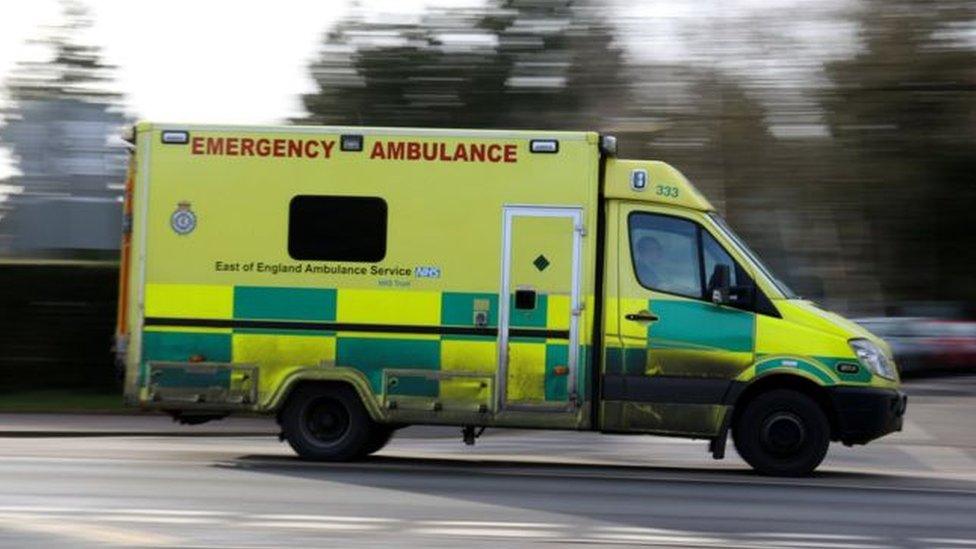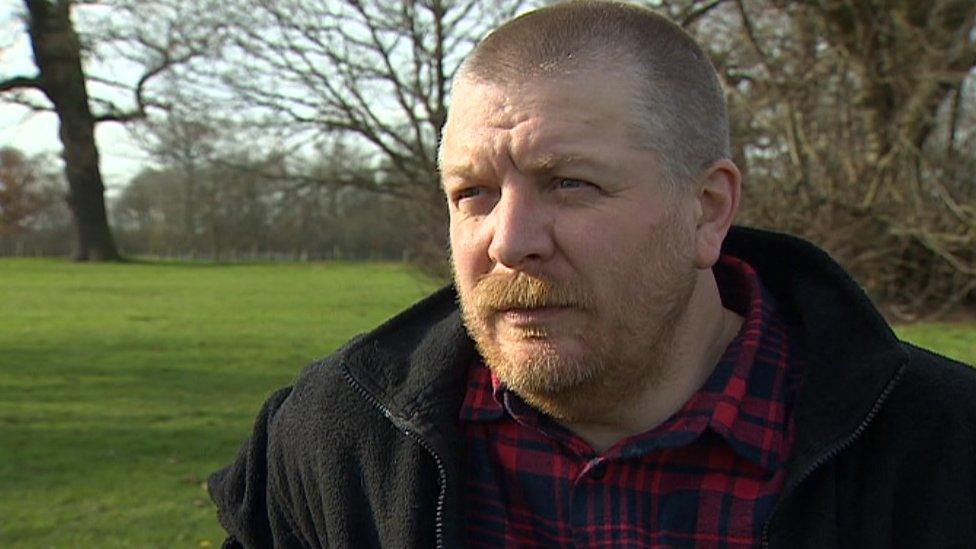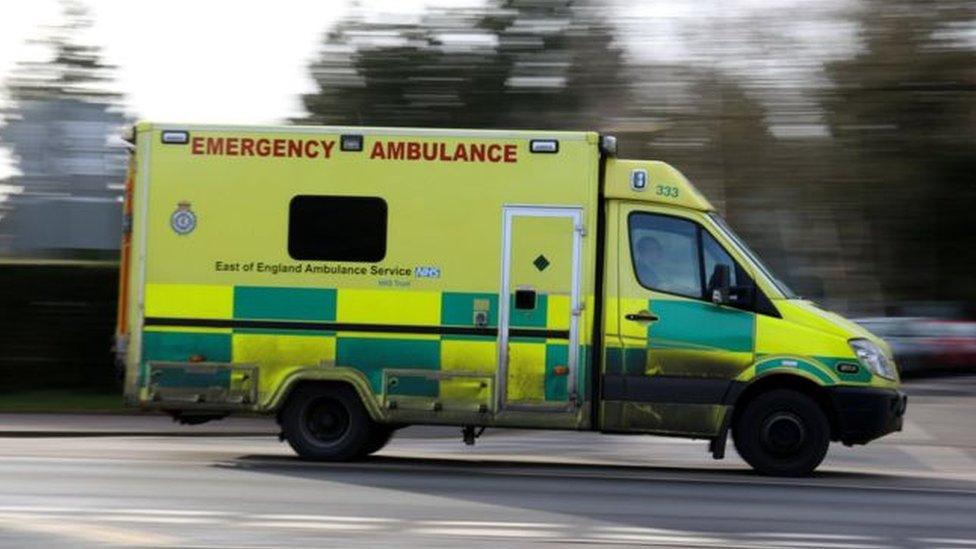East of England Ambulance Service staff 'silenced' over bullying
- Published

The ambulance service has used 28 non-disclosure agreements in relation to bullying cases since 2016
Concerns have been raised that NHS ambulance staff are being "silenced" over bullying allegations.
Hundreds of East of England Ambulance Service (EEAS) employees reported bullying in 2018, while 28 non-disclosure agreements (NDAs) have been issued since 2016.
The GMB union said the figures showed a "heavy-handed culture".
The service said it took bullying and harassment "extremely seriously" and had policies to prevent such behaviour.
EEAS faced scrutiny in November when it emerged three members of staff died in 11 days. One, Luke Wright, 24, is believed to have taken his own life.
An independent investigation, which dealt in part with bullying claims, has been carried out with the results reported to the trust in January.
The 28 NDAs had been made in cases where bullying, harassment or abuse by colleagues had been reported, according to figures obtained under the Freedom of Information Act, external.
These involved an individual agreement, often with a payment, which prevented the person speaking about their case.
'Silencing rather than resolving'
In the latest staff survey from 2018, 23% of staff reported bullying, up from 21% in the previous year.
The GMB said NDAs were seen as a "method of silencing rather than resolving" and called on the trust to discuss more meaningful ways of dealing with problems.
Gavin Davies, the union's NHS senior organiser, said: "We would hope an emergency service provider that prides itself on saving lives would have a better mechanism for resolving difficulties rather than using NDAs.
"Policies and procedures are in place to give organisations and staff clear guidelines on how to work through whatever issues may arise."

Damian Sherman said he felt "forced out" of the service
One of those who felt bullied was Damian Sherman, who lives in Burnham-on-Crouch, Essex.
After a "fantastic career" which had seen him work for the ambulance service at Stansted Airport and in the hazardous incident team, he said he felt forced out after showing symptoms of post-traumatic stress disorder (PTSD).
"I had begun to suffer with effects of PTSD, that were brought to my attention later, and I was acting out of character, and that is when the ambulance service started to mismanage me," he said.
"I started to feel isolated and taken away from my job."
Mr Sherman said he was taken off frontline duties and put in an audit office.
"They were very hostile to me," he said. "They did things which made me question myself and things that happened were definitely bullying - trying to discredit me."
The ambulance service said it would not comment on individual cases, but that it had significantly reduced the number of NDAs it used.
EEAS chief executive Dorothy Hosein said: "Bullying and harassment is never acceptable. We take all allegations of harassment and bullying extremely seriously.
"We have policies and training in place to create a culture where this behaviour does not happen.
"We are committed to providing optimal wellbeing and welfare support, which is continuously reviewed and improved."

Find BBC News: East of England on Facebook, external, Instagram, external and Twitter, external. If you have a story suggestion email eastofenglandnews@bbc.co.uk, external
- Published28 November 2019

- Published23 November 2019

- Published22 November 2019
